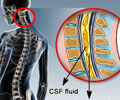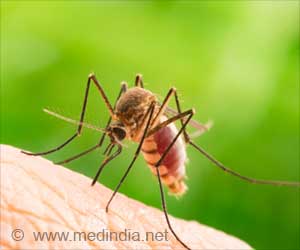Experts say that there is at least one strain of the H5N1 virus that leaves avian flu survivors at increased risk for Parkinson's disease, and other neurological problems later in life.
Experts say that there is at least one strain of the H5N1 virus that leaves avian flu survivors at increased risk for Parkinson's disease, and other neurological problems later in life.
Writing in the online early edition of the Proceedings of the National Academy of Sciences, the researchers at St. Jude Children's Research Hospital said that their suggestion was based on the findings of the animal studies conducted by them.They said that the mice that survived infection with an H5N1 flu strain were more likely than uninfected ones to develop brain changes associated with neurological disorders like Parkinson's and Alzheimer's diseases.
The study revealed the H5N1 flu strain caused a 17 percent loss of the same neurons lost in Parkinson's as well as accumulation in certain brain cells of a protein implicated in both diseases.
"This avian flu strain does not directly cause Parkinson's disease, but it does make you more susceptible," said Dr. Richard Smeyne, associate member in St. Jude Developmental Neurobiology.
"Around age 40, people start to get a decline in brain cells. Most people die before they lose enough neurons to get Parkinson's. But we believe this H5N1 infection changes the curve. It makes the brain more sensitive to another hit, possibly involving other environmental toxins," added Smeyne.
The single strain of the H5N1 flu virus involved in the study was the A/Vietnam/1203/04 strain. The threat posed by other viruses, including the current H1N1 pandemic flu virus, is still being studied.
In this case, they believe, the flu virus is the first hit that sets up development of Parkinson's at a later time.
Smeyne said that the virus' path from the stomach through the nervous system and into the brain is reminiscent of how Parkinson's unfolds.
Source-ANI
ARU
 MEDINDIA
MEDINDIA



 Email
Email










